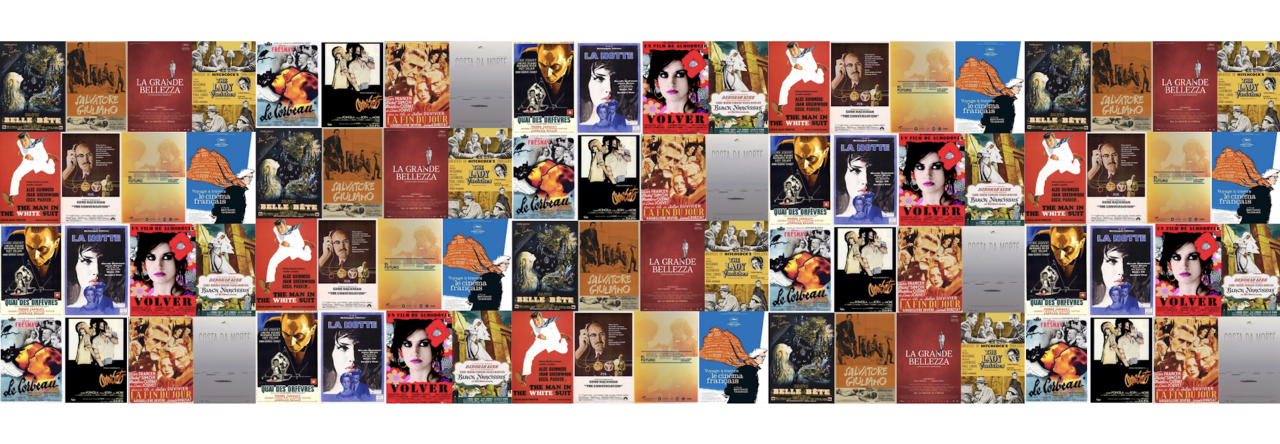
The first online festival in Spain specifically dedicated to films without a commercial release or without access to the normal methods of distribution, Festival Márgenes is now in its fifth year and continues to celebrate and support filmmakers and films committed to offering alternative perspectives on both cinema and society. The full list of criteria that the films have to meet can be found here – but essentially they have to be more than 40 minutes long, to have not been distributed, and to originate from a specific set of countries (Argentina, Bolivia, Brazil, Chile, Colombia, Costa Rica, Cuba, Dominican Republic, Ecuador, El Salvador, Guatemala, Honduras, México, Nicaragua, Panama, Paraguay, Peru, Portugal, Puerto Rico, Spain, Uruguay and Venezuela). The films can be of any genre, although it’s noticeable that documentaries tend to feature strongly.
The festival takes place in cinemas in Madrid, Monterrey, Barcelona, Montevideo, Córdoba, México DF, and Santiago de Chile from the 3rd December and then moves online from the 13th until the 31st. The films are all available to stream for free (although there are a couple that aren’t viewable outside of specified locations – noted below). There are Spanish subtitles on films that aren’t in Spanish, but as far as I’m aware there are no English subtitles this year. But even if your Spanish is rudimentary, I’d encourage you to give it a go – a) because cinema communicates through visuals (and non-verbal sound) at least as much as it does through verbal interactions, b) you have the chance to watch some films that you possibly won’t encounter elsewhere.
I haven’t had time to start watching the 2015 selection yet, but I wrote about the 4th edition last year and saw several films that I really liked – namely África 815 (Pilar Monsell, 2014) [UPDATE Oct 2016: the film is available to rent on the Márgenes VOD platform – there’s no indication whether subtitles are included], El gran vuelo / The Great Flight (Carolina Astudillo, 2014) [UPDATE Oct 2016: also available to rent – likewise, no indication of subtitles], and Propaganda (Colectivo MAFI, 2014). Hopefully I’ll manage to watch more this year. The festival prizes have already been awarded (indicated below – but see the website for full details / jury citations and the breakdown of what the prizes entail), so I will prioritise those titles but I also want to see Revolução Industrial [Industrial Revolution] (which I’m sure I read about last year in relation to other festivals), Transeúntes (which was recently at the Seville Film Festival), and the special bonus film (not part of the competition) Ragazzi (Raúl Perrone, 2014) – I saw Perrone’s Favula in Barcelona earlier in the year (my review) and would like to see if his other films maintain the fevered rarity of that one. So basically I need more hours in the day between now and the end of the year.
It’s also worth pointing out that Márgenes has its own VOD catalogue outside of the festival – a mixture of shorts and features (some viewable for free, others pay-per-view for a modest fee) and all at the more original and idiosyncratic end of Spanish production, including several films I’ve written about previously (for example, Edificio España (Víctor Moreno, 2013) and Branka (Mikel Zatarain, 2013)).
Anyway, the full list of films in the 2015 official selection is below – clicking on the title will take you to the streaming page for that film. I will post something further when I’ve managed to watch some of the films. UPDATE (28/12/15): I’ve started watching the films and will add * next to the title if I find that they have English subtitles (note: I’m only going to have time to watch a few, so if you’re interested I suggest that you try streaming them to see whether subtitles appear). UPDATE (Oct 2016): several of the films from this collection are now available to rent on the Márgenes VOD platform – note that subtitles aren’t mentioned, although that doesn’t necessarily mean that there aren’t any (that was also the case during the festival period and all of the ones that I watched had subs).
Alexfilm (Pablo Chavarría, 2015), Mexico, 60 min.
As cidades e as trocas (Luísa Homem and Pedro Pinho, 2014), Portugal, 139 min.
El corral y el viento* (Miguel Hilari, 2014), Bolivia, 55 min. BEST FILM
La extranjera (Miguel Ángel Blanca, 2015), Spain, 70 min [only available in Spain].
La maldad* (Joshua Gil, 2015), Mexico, 74 min. SPECIAL MENTION BY THE JURY
La sombra* (Javier Olivera, 2015), Argentina, 72 min. CAMIRA PRIZE
L’Esma del Temps (El Sentido del Tiempo) (Alexandra Garcia-Vilà, Marta González, Marta Saleta, 2015), Spain, 54 min. HONORARY MENTION
Microbús (Alejandro Small, 2014), Peru, 44 min.
Navajazo (Ricardo Silva, 2014), Mexico, 75 min. [only available in Spain, Mexico, Chile & Uruguay].
Next (Elia Urquiza, 2015), Spain / USA, 72 min.
Revolução Industrial (Frederico Lobo and Tiago Hespanha, 2014), Portugal, 72 min.
Tú y Yo (Oriol Estrada and Natalia Cabral, 2014), Dominican Republic, 85 min. EXHIBITION PRIZE
Transeúntes* (Luis Aller, 2015), Spain, 101 min.







